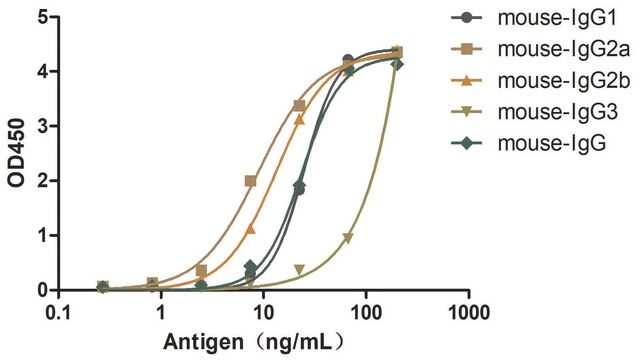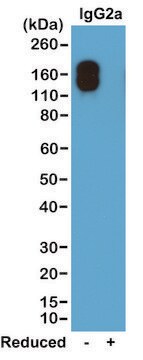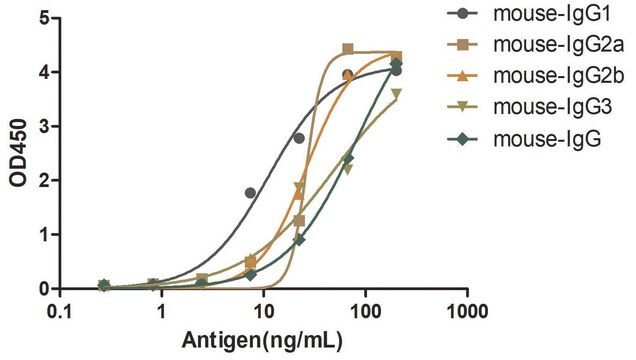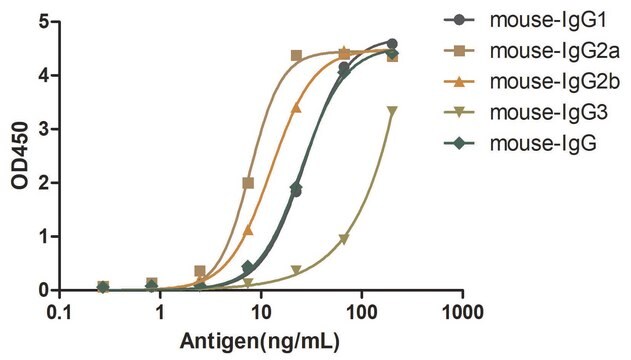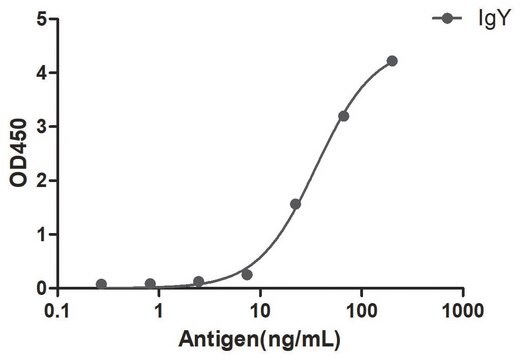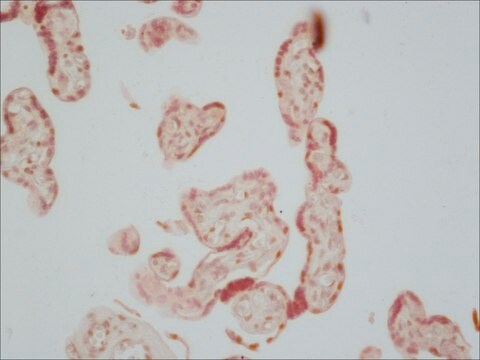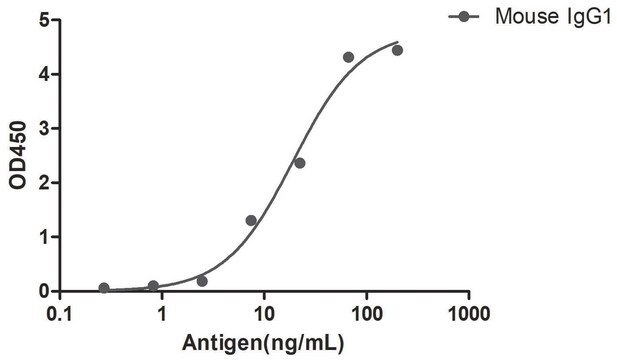SAB5801008
Alpaca Anti-Mouse IgG2a(Fcγ) HRP single domain Antibody
recombinant Alpaca(VHH) Nano antibody
Synonyme(s) :
Recombinant Alpaca single variable domain secondary Nanobody
About This Item
Produits recommandés
Source biologique
alpaca
Produit recombinant
expressed in E. coli
Conjugué
horse radish peroxidase (HRP)
Forme d'anticorps
affinity purified immunoglobulin
Type de produit anticorps
secondary antibodies
Clone
recombinant monoclonal
Forme
lyophilized solid
Poids mol.
14 kDa
Espèces réactives
Alpaca, mouse
Technique(s)
ELISA: 1:10000-1:50000
western blot: 1:10000-1:50000
Taille
0.1 mL
Couleur
colorless
Isotype
VHH
Conditions d'expédition
wet ice
Température de stockage
2-8°C
Description générale
Most monoclonal antibodies are generated in mouse. There are five antibody isotypes (IgA, IgD, IgE, IgG, and IgM) from mouse. Each isotype has a different heavy chain. Mouse IgG constitutes 75% of serum immunoglobulins, and IgG is the predominant form of first antibody produced from mouse. Mouse IgG consists of five subclasses-IgG1, IgG2a, IgG2b, IgG2c(inbred mouse strains with the Igh1-b allele have IgG2c isotype instead of IgG2a), IgG3. They are highly homologous and differ mainly in the hinge region. The whole IgG molecule possesses both the Fc region and the Fab region, which possessing the epitope-recognition site. The IgG contains two heavy and light chains, and the heavy chain is about 50 KD and the light chain is about 25 KD. The common IgG is monomeric with a molecular weight of approximately 150 kD.
VHH are single-domain antibodies derived from the variable regions of heavy chain of Camelidae immunoglobulin. The size of VHH is extremely small(<15KDa) compared to other forms of antibody fragment, which significantly increase the permeability of VHH. Thus VHH is considered of great value for research, diagnostics and therapeutics.
Spécificité
Isotype: VHH domain of alpaca IgG2b/2c
Immunogène
Conditionnement
Forme physique
Reconstitution
Stockage et stabilité
Autres remarques
Vous ne trouvez pas le bon produit ?
Essayez notre Outil de sélection de produits.
Mention d'avertissement
Warning
Mentions de danger
Conseils de prudence
Classification des risques
Aquatic Chronic 3 - Skin Sens. 1
Code de la classe de stockage
13 - Non Combustible Solids
Classe de danger pour l'eau (WGK)
WGK 3
Point d'éclair (°F)
Not applicable
Point d'éclair (°C)
Not applicable
Certificats d'analyse (COA)
Recherchez un Certificats d'analyse (COA) en saisissant le numéro de lot du produit. Les numéros de lot figurent sur l'étiquette du produit après les mots "Lot" ou "Batch".
Déjà en possession de ce produit ?
Retrouvez la documentation relative aux produits que vous avez récemment achetés dans la Bibliothèque de documents.
Notre équipe de scientifiques dispose d'une expérience dans tous les secteurs de la recherche, notamment en sciences de la vie, science des matériaux, synthèse chimique, chromatographie, analyse et dans de nombreux autres domaines..
Contacter notre Service technique